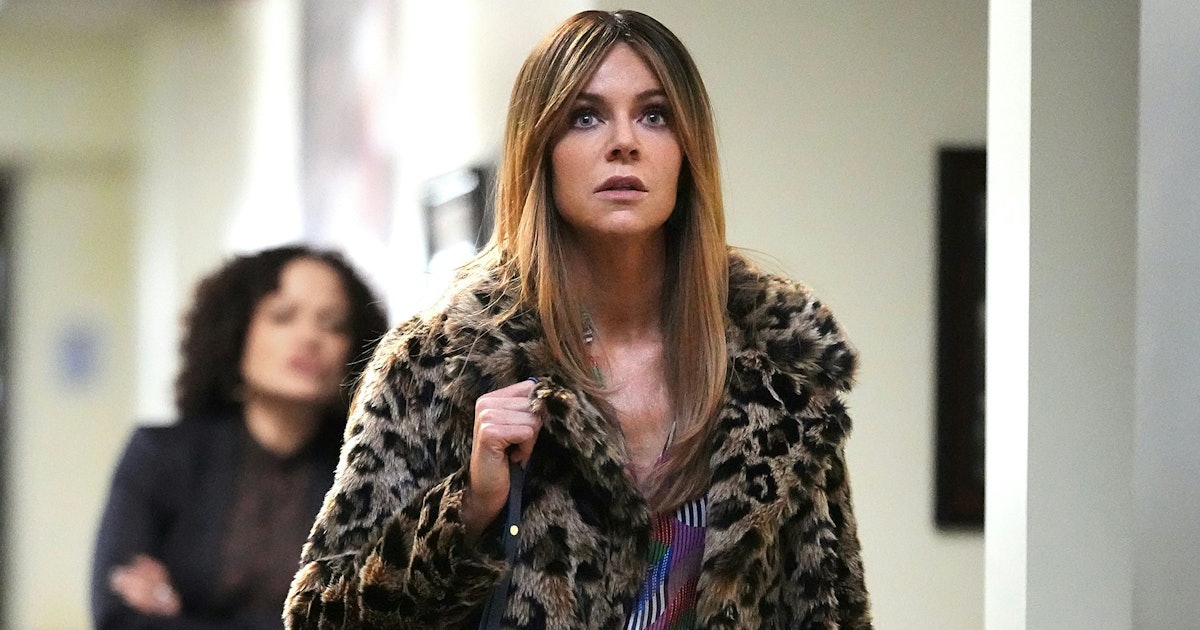Over the course of her 16-season (and counting) run on It’s Always Sunny in Philadelphia, Kaitlin Olson has been approached numerous times to play variations of her self-loathing, wise-cracking character “Sweet” Dee Reynolds, but those offers have always been a hard sell. “I feel like the writing on Sunny is at the top of its game,” the 49-year-old actress tells W. “I’m making [Dee] the best character I can, so I’m not going to be able to do it better on another show.”
But that hasn’t stopped her from taking on new roles. Fresh off her second Emmy nomination (and third overall) for her portrayal of DJ Vance, the neglected and needy daughter of Jean Smart’s self-centered Deborah on HBO’s critical darling Hacks, Olson is combining her well-honed comedic chops with the tried-and-true format of a crime procedural for High Potential, premiering today on ABC.
Based on the popular French series Haut potentiel intellectuel and adapted by screenwriting vet Drew Goddard, the new drama stars Olson as Morgan Gillory, a single mother of three with advanced cognitive abilities who, after helping solve a murder while working as a night cleaner for the LAPD, is brought on-board to consult on cases. It’s not the most unusual premise, but with Olson at the helm, there’s a wry, knowing wink embedded into the material. “She is wildly unique and fun, does things her own way, feels things deeply, and doesn’t necessarily play by the rules,” Olson says of her character. “It’s interesting to watch how she fits into the police department, where everything is very by-the-book.”
Although she wasn’t looking to lead an hour-long network drama, Olson was drawn to the “character-driven” and serialized nature of the storytelling in High Potential, as well as the appeal of flexing a creative muscle she didn’t always know she’d had. “I absolutely love being able to jump back and forth on this show and be both funny and authentically broken, raw and scared,” she says.
Having begun her career at the Groundlings and established herself with sharp improv work on Curb Your Enthusiasm and The Drew Carey Show in the early 2000s, Olson is an expert at holding her own among razor-sharp, comedic ensembles. High Potential presents a new challenge. She recently wrapped a particularly “intense” upcoming episode that left her feeling mentally and physically drained. “But it was hard in a good way,” she says. “I was exhausted at the end and so proud of myself.” Olson is also proud of Sunny, the longest-running American live-action sitcom in TV history. But whereas that show makes her one part of a well-oiled machine, High Potential lives and dies by her ability to execute a new set of skills.
During a Television Critics Association panel in July, Olson said she doesn’t think comedy is as respected as drama, echoing an on-going conversation sparked by The Bear’s two-year sweep of the Emmys comedy category—bringing critics and fans alike to question what exactly defines the genre. She clarifies that she has “a ton of respect for talented actors, period,” but that “when it comes to awards, the general public thinks that making people cry is much harder than making them laugh—and I disagree. Both are hard, but both require skill.”
Jean Smart and Kaitlin Olson on Hacks
Photograph by Hilary Bronwyn Gayle/Max

On Hacks, which surprised everyone by winning the Best Comedy Series Emmy over The Bear this year, Olson’s character requires some of that range. In the third season, DJ, a recovering addict, has a life-changing moment of clarity when she realizes her mother, Deborah, is tethered to her own vice—the stage. This thought helps the newly pregnant DJ see that she isn’t responsible for her mother’s bad parenting and makes her freshly determined to heal old family wounds.
“I assume she’ll try and do things in a completely opposite way than the way that she was parented, but you always end up like your mom, in some way or another,” Olson says of DJ’s forthcoming season four arc, adding that she, for better or for worse, has started sounding like her own mother around her two sons. “The way you are parented is going to sneak in, so I am interested to see how that plays out.”
Despite the genre switch, High Potential continues Olson’s trend of playing scrappy, underestimated characters whose tough exteriors belie the scars of their painful past. Her attraction to playing dynamic, at times problematic women is a reaction to the industry’s insistence, when she was first starting out over 20 years ago, that all female characters be likable.
Sunny, created in 2005 by her husband and co-star Rob McElhenney, “was the first show where it was like, ‘You know how you’re supposed to make the characters likable? Yeah, you don’t have to worry about that,’” Olson says. “As women, we are groomed by society to be pleasant, smiling, kind, and likable to get what we need. That’s not something that men have to deal with.”
“It feels really good to recognize that being very clear and firm about what you expect—there’s nothing about that that’s unlikeable,” she adds. “People respect and trust you more when you’re just authentically that.” It’s no coincidence that many of her characters also follow this philosophy. “It feels good to play a character who’s like, ‘Fuck off! If you don’t like it, that’s fine. I don’t care. I don’t need you. I’m dealing with what’s important, which is, for me in this show, three kids who need me.’ That’s why I like strong female characters.”

